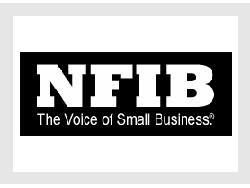Small Business Optimism Ticked Down in Sept. But Still Positive
Washington, DC, October 8, 2019-The small business Optimism Index maintained a historically solid reading, but took a dip in September, falling 1.3 points to 101.8, according to the National Federation of Independent Business.
September’s figure falls within the top 20% of all readings in the Index’s 46-year history. The survey shows no sign of a recession and indicated continued job creation, capital spending, and inventory investment, all consistent with solid, but slower growth. The Uncertainty Index rose 2 points, revisiting high levels of concern.
“As small business owners continue to invest, expand, and try to hire, they’re doing so with less gusto than they did earlier in the year, thanks to the mixed signals they’re receiving from policymakers and politicians,” said NFIB president and CEO Juanita D. Duggan. “All indications are that owners are eager to do more, but they’re uncertain about what the future holds and can’t find workers to fill the jobs they have open.”
Key findings from September’s index included:
* No Index component advanced, three were unchanged (at good levels), and six declined.
* Reports of rising labor compensation remained historically strong and fewer firms reported raising selling prices, so rising labor costs are still not pushing up inflation on Main Street.
* Twenty-five percent expected credit conditions to remain unchanged or to tighten in spite of two rate cuts by the Federal Reserve. Reported credit market conditions remain among the most supportive in the 46-year survey history.
* The perceived environment for expansion and expected business conditions deteriorated further. Twenty-two percent of owners said it was a good time to expand, down four points, while a net 9% expect better business conditions, down 3 points.
The Uncertainty Index has risen six points over the past three months, as more owners are unable to make a statement confidently, good or bad, about the future of economic conditions. Tariffs are adversely affecting many small firms, with 30% reporting negative effects in NFIB’s September survey. Owners are more reluctant to make major spending commitments when the future becomes less certain.
